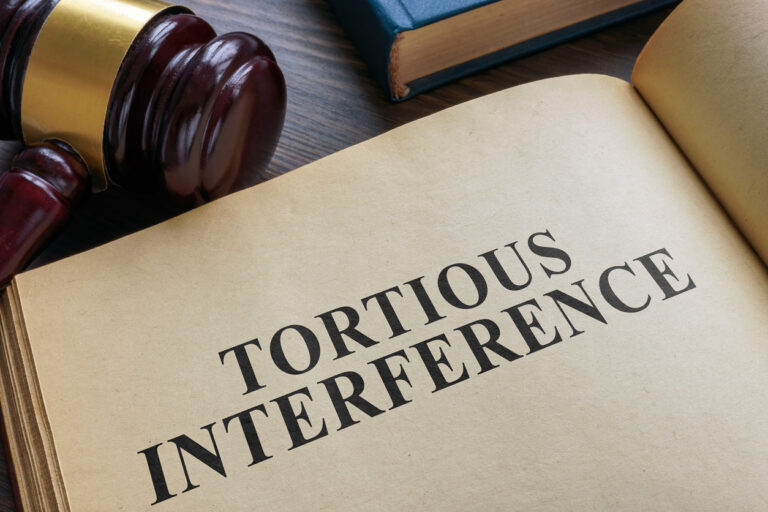
Tortious interference claims occur when one commits tortious conduct in an attempt to deprive or interfere with the inheritance of another, such as by way of fraud or duress, which interferes with the inheritance or gift going to whom the decedent had intended.
In such an instance, if the third party was successful in not allowing that inheritance or gift go through, a claim for tortious interference with an expectancy may be sought. These cases are usually brought in civil court, not in probate court, and seek to recover the damages suffered due to the interference and also to reclaim the inheritance. Exhausting remedies through the probate court is also a prerequisite about which your probate lawyer can advise, see DeWitt v. Duce, 408 So. 2d 216 (Fla. 1981)(stating in relevant part that “appellants had an adequate remedy in probate with a fair opportunity to pursue it. Because they lacked assiduity in failing to avail themselves of this remedy, we interpret section 733.103(2) as barring appellants from a subsequent action in tort for wrongful interference with a testamentary expectancy”) and All Children’s Hospital, Inc. v. Owens, 754 So. 2d 802 (Fla. 2d DCA 2000).
Establishing a successful claim for tortious interference with an expectancy does require meeting certain elements, which were carefully and succinctly explained by the Second District Court of Appeal in Claveloux v. Bacotti, 778 So.2d 399, 400 (Fla. 2d DCA 2001):
The tort of intentional interference with an expectancy includes the following elements: (1) the existence of an expectancy; (2) intentional interference with the expectancy through tortious conduct; (3) causation; and (4) damages. […] There is a tendency to prefer that inheritance disputes be resolved in proceedings after the testator’s death, in part because this acts as a safeguard of the deceased testator’s interests. […] no state other than Maine has allowed this cause of action to be pursued prior to the testator’s death.
[…] this court examined the important policy reasons for the rule favoring the resolution of such disputes in probate proceedings following the death of the testator. […] More important, however, was our recognition in Whalen that exceptions to the rule are limited to relatively rare circumstances in which post-death remedies are virtually certain to be inadequate. […] the tortfeasor predeceased the testators; under the Probate Code, the disappointed heirs were compelled to file a timely claim against the tortfeasor’s estate or lose their remedy. […]
Whalen referred to the fact that the plaintiffs, in that case, were not members of the testator’s family, and that the testator remained competent. Claveloux points out that she is the daughter of an incompetent testator. But these factors do not in themselves render her probate remedies inadequate or ineffective. After her mother’s death, Claveloux may challenge the will and the trust as the product of undue influence or fraud […] and thereafter may seek additional remedies available in a tortious interference suit. […]
(All citations omitted.)
In sum, if you believe you can satisfy the elements for tortious interference with an expectancy, you should speak with your trusted estate attorney about this and about first exhausting your probate remedies to the extent applicable as well.